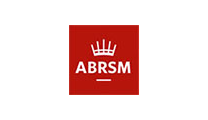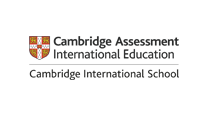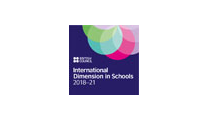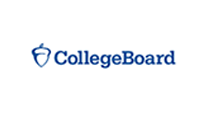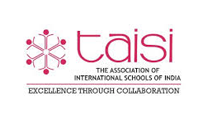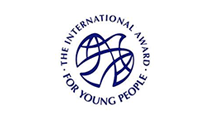- 1. What is the Academic calendar that the school follows?
- The Academic Year is from July to May.
The school year consists of two semesters:
Semester I: July to December
Semester 2: January to May - 2. What is the class size?
-
Pre-Primary - 12 students with one teacher and one lady attendant
Primary - 25 students per class with one teacher
Secondary - 25 students per class with one teacher - 3. When are the examinations held for IGCSE and A levels?
-
Examinations are held in May and November for the IGCSE and March for the A level students. This allows our students to sit for various competitive exams within India and have their results well in time for the admission process for colleges in the country.Our Faculty
Our faculty – Principal, Heads of Departments and teachers are drawn from the best institutions across the country. Regular teacher training and workshops are conducted. All staff comes with suitable teaching qualifications and an experience in international schools of repute. Many of them have held senior positions in their previous assignments. Professional development is continuous and relevant to each staff member’s needs.
The nine year old Montessori Teacher Training Centre, at The Ardee School – New Delhi, and Gurugram; plus the new elementary Montessori Teacher Training programme imparts exhaustive training in the Montessori Methodology, thus ensuring professionally qualified faculty for the pre primary students.
- 4. What is the Admission process and procedure?
- Admission Process
Pre primary students-There is no testing for students, however we have a meeting with the family to understand expectations and communicate our vision and practices. Primary students- appear for tests in English and Mathematics. We also meet the parents to have a mutual understanding of the student’s academic journey.
Year 6 to 8
The students appear for a test in English and Mathematics. We also meet the parents to have a mutual understanding of the student’s academic journey. The student’s past academic reports need to be shared with the school.
Year 9 to 12
A written test in English is compulsory. Year 9 will also have to give a written exam in Mathematics. This will be followed by an interview with the student and family. Subject choices will be offered on the basis of aptitude and past achievement in the subjects being chosen. This will be further strengthened through a psychometry test undertaken by the student and analysed by the College Counsellor.
A Transfer Certificate and photocopies of the report card of the last two years need to be attached with the application form ,along with a copy of the birth certificate.
Filing and submitting of application form does not guarantee admission to the School.
On being offered a place, parents will be given two week’s time to pay the admission fee (if the student is not joining immediately) and security deposit to secure the place. No student shall be allowed to attend classes unless an ID number has been generated. ID numbers are issued on receipt of fees. Parents further need to fill and submit various forms and declarations that are given along with the admissions acceptance letter. This is done to ensure the health and safety of the students.
The decision of the School Authorities is final and binding. Any false or incorrect information furnished may jeopardize selection and enrolment.
You are most welcome to visit our School and have an informal discussion with or without your child. This can be done by fixing a prior appointment with our admissions team. A meeting can also be arranged with the School Principal by prior appointment.
On admission to the school, a parent automatically signs up for all the policies of the school.
Transparency
Parents are requested to be frank and honest in providing information in the admission application form. Adverse information if any, whether scholastic or behavioural, will not be a ground for refusal of any admission request. Any such information would in fact help the school to create a suitable environment for your child, once admitted. Any wrong information or concealment of information discovered later may lead to cancellation of admission.
Admissions during the year
Parents may register at any time during the year for admission in the current year and will be interviewed whenever a place is available. - 5. How is Cambridge different from other boards and what are the key advantages?
-
It is the methodology and delivery of concept that makes all the difference between the CIE and many other boards. The CIE curriculum is more practical and application based emphasizing ‘knowledge with understanding’ and ‘skills with application’. It helps in the all- round development of the children cultivating transferable skills for lifelong learning.
As opposed to assessing memorized knowledge and speed of recall, CIE assesses students’ knowledge, understanding, reasoning, problem solving abilities and the higher cognitive skills of analysis and synthesis. In CIE there is greater scope of independent and collaborative learning through projects, activities, presentations and interactive team-based and enquiry-based learning. Teaching and learning techniques are structured to arouse students’ curiosity and promote personal development.
Examinations are set and marked by the CIE authorities in Cambridge, U.K., thus ensuring that the students are benchmarked as per international, worldwide benchmarked quality standards. CIE accreditation is a guaranteed passport for students who wish to pursue a college education in India or abroad.
Key advantages
- Assessment is done with an 8 point grading scale (A* being the highest attainable grade)
- ICE-International Certificate of Education can be awarded along with the Advanced Level Certification.
- Examinations are offered in March, May and November and are modular.
- A well balanced curriculum that is internationally oriented.
- A level and AS level are recognized byUniversities all over the world.
- 6. Are CIE examinations recognized in India?
-
All Indian board/Universities accept the IGCSE and the A Level to the 10th and 12th Standard of the CBSE. All universities in India accept the CIE certification at A levels as equivalent to the Year 12 of the CBSE programme. Click here
International RecognitionCambridge IGCSE is taken in over 100 countries worldwide and widely recognised by higher education institutions and employers around the world as evidence of academic ability. Cambridge IGCSE is equivalent to the GCSE in the United Kingdom. In some parts of the world, schools use Cambridge IGCSE as an international alternative to the local government's examination.
Each learner's performance is benchmarked using eight internationally recognised grades (A*-G). In some countries, the IGCSE qualifications satisfy the entry requirements for university. In others, they are widely used as a preparation for A Level, AS, International Baccalaureate and US Advanced Placement courses. - 7. When can I visit the school and see the facilities?
-
You are most welcome to visit THE ARDEE SCHOOL and have an informal discussion with or without your child. This can be done by fixing a prior appointment with our Admissions office In charge through mail at contactus_nfc@theardeeschool.com or call us at 180010ARDEE (18001027333). A meeting can also be arranged with the School Principal or any other faculty member that you may wish to see.
- 8. Does the school address the theory of Multiple Intelligence?
-
The school curriculum and philosophy is based on the theory of MI. We understand that every child is unique and special with his/her learning styles, interests, strengths and that the school has to cater to and nurture this to ensure the actualization of each child's potential.
We treat each child as an individual and respect him/her for his/her individuality. The teaching strategies ensure that different learning styles are addressed for optimum achievement and through academically validated differentiation practices; each child is fully engaged with the work. There is an IEP (Individual Education Plan) for each child who has any Special Educational Needs. - 9. What is the language policy at Ardee?
- The school would like to encourage bilingual proficiency for all students. Besides offering basic languages i.e. English and Hindi from grade I upwards, French and Spanish are offered as a subject choice in the curriculum from Year 3 upwards.
- 10. What is the school assessment pattern?
-
The primary purpose of assessment is to support and enhance student learning. We recognize and appreciate that students have different learning styles and both the formative and summative assessments are based on this premise. This makes the evaluation fair, while it demonstrates a wide range of best practices. All assessments are based on a mutual understanding between the student and teacher on what will be assessed and how. The formative assessments (AFL- Assessment For Learning) are ongoing and provide students with a clear feedback to help them set their targets for the future. The summative assessments (AOL- Assessment of Learning) are calendared and follow pre decided units as per the needs of a particular subject. All assessments are more skill based and involve critical thinking and discourage rote learning. Students are also involved in cross curricular symposiums and projects which form part of the final assessment grade. This serves to make them independent learners.
Key Stage 1 and 2
Formative Assessments are ongoing and aimed at providing information to guide teachers and enhance student performance. These are not graded.
Summative assessments are based on short units to provide information on student achievement against specific benchmarks.
A range of assessment practices are used to cater to the strengths and learning styles of different students and includes projects, oral presentations and presentations using technology. All assessments are not the traditional pen and paper ones.
Key Stage 3
In addition to the above, students of Key Stage 3 have two calendared assessments at the end of each semester. The final grade is based on the summative assessments done through the semester as well as the end of semester assessments. This system is observed to prepare the students for timed assignments of a longer duration and covering a larger chunk of the syllabus to stand them in good stead for the IGCSE at the end of Year 10.
Key Stage 4 and 5
Key Stage 4 includes Year 9 and 10 and culminates in the IGCSE examinations conducted by Cambridge at the end of Year 10.
Students take a psychometry test to enable them to make an informed choice regarding the subjects they would like to pursue. They are supported in this process by the College Counsellor, the Cambridge Coordinator and the Principal/ Deputy Principal. A meeting is held with each student along with the parents to finalise the subject choices.
Students take a minimum of 8 subjects for their IGCSE programme. Differentiation is provided based on the needs of the students.
Key Stage 5 includes Year 11 and 12. Students take up the AS and A level exams at this level.
A student is required to take a minimum of 4 subjects at this level. This process is again guided by the psychometry test and the guidance of the Counsellor, the Cambridge Coordinator as well as the Deputy Principal / Principal along with the parents.
The assessment format at Key Stage 4 and 5 is more rigorous. It includes the ongoing formative assessments, summative assessments and end of semester calendared assessments. In addition, students in Year 10 and 12 undergo two Mock Examinations to prepare them for their final IGCSE and AS/A level examinations.
Students are encouraged to work on cross curricular projects to strengthen their portfolios as this initiative makes them stand out as independent learners.
In addition to the above, students of Key Stage 4 and 5 take the CEM test (Centre for Evaluation and Monitoring) from Durham University. CEM is a leading provider of Assessment and Monitoring Systems which includes Baseline, Attitudinal, Diagnostic and Entrance testing for students.
The CEM testing enables the teachers to gauge student aptitude and interest in different areas and ensure that each student achieves his/her optimum. This data is shared with students and parents.
In Key Stage 4 and 5 students are also encouraged to take standardized testing like SAT, ACT, TOEFFL, IELTS etc. They are guided by the College Counsellor during the regular time tabled Counselling lesson. - 11. Is there a counselling centre in school?
- We have an experienced inhouse College Counsellor who guides and supports the students from Year 8 upwards. The students go through a Psychometry test at the end of Year 8 to choose their subjects at IGCSE and then at the end of Year 10 to choose their subjects at the A level. The students are provided with every opportunity to have a strong college application and a four year transcript.
- 12. How does the school support students who have social/emotional problems?
- Every teacher is responsible for each child and his/her well being in the school. The school ethos promotes respect, trust and acceptance of differences. The class mentor is the point of main contact for all discussion and monitoring of student progress and works with colleagues to support each child in his/her learning in the school. In addition, the school provides a constant online interaction between parent, teacher and the student, under the guidance of a designated Counsellor when required.
All students get designated time with the Counsellor. In addition, the school offers a robust PSHE (Personal, Social Health Education) curriculum to address the needs of the students in an age appropriate manner. - 13. How accessible is the faculty and the board?
- The faculty is always accessible to parents of the school students through an online forum and by appointment.
- 14. What should I do if my child is absent?
-
The School Attendance Policy clearly states that all students are required to have a minimum attendance of 90%. Absence from school without a very valid reason is discouraged as we believe that it impacts student learning adversely. Parents are informed at the end of every month if their son/daughter has not got the mandatory 90% attendance. Students who do not have the 90% attendance are not allowed to stand for the Student Council elections unless the reason for absence is very valid and merits a concession.
If your child is absent for more than two days, please inform the school by phone or online about the reason of absence. You must also remain in contact with the class teacher, online, for follow up of the work your child has missed. A doctor's certificate/medical fitness certificate must be sent when the child rejoins the school after an extended illness. - 15. What should I do if I want a detailed discussion about my child with her/his teachers?
- All communication about the child will constantly be updated on the student profile. If you need to discuss your child's progress, you may make an appointment with the class teacher at a time suitable to both of you.
